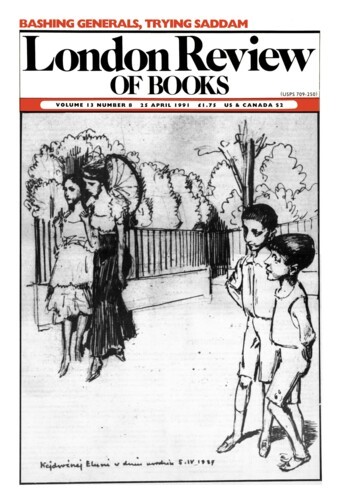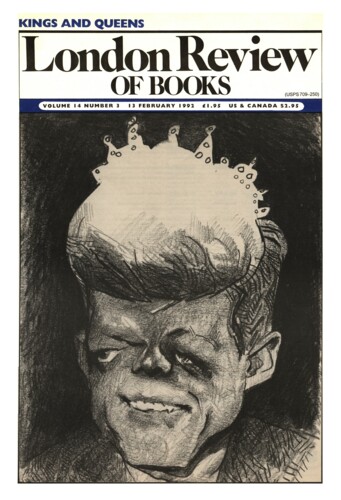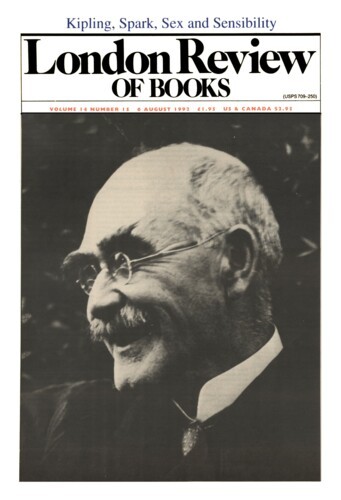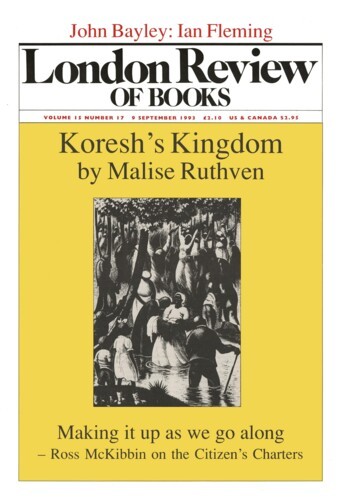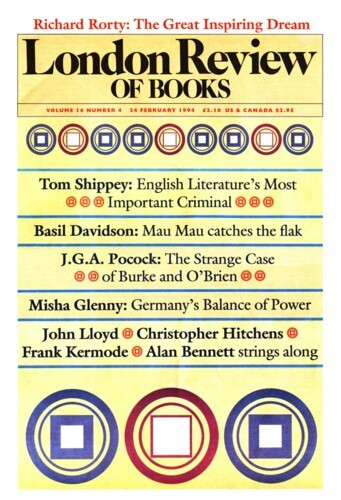Darkness and a slippery place
Robert Alter, 25 April 1991
Augustine’s Confessions, though frequently set at the beginning of a line of literary history that leads to Rousseau and Henry Adams, is a narrative of the writer’s life only in a highly intermittent and drastically selective way. Its aim, as has often been noted, is more spiritual exhortation then self-revelation, or, more precisely, it is an exposition of the divine scheme with reference to a particular life-experience. As Henry Chadwick observes in the judicious introduction to his useful new English version, in explaining the role of the philosophic Books X to XIII that constitute over a third of the whole, ‘the story of the soul wandering away from God and then in torment and tears finding its way home through conversion is also the story of the entire created order.’
